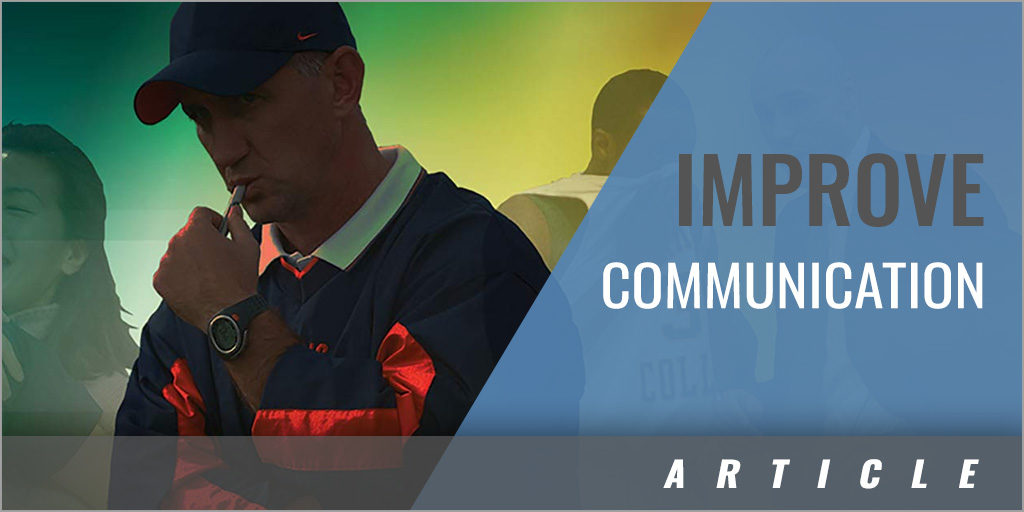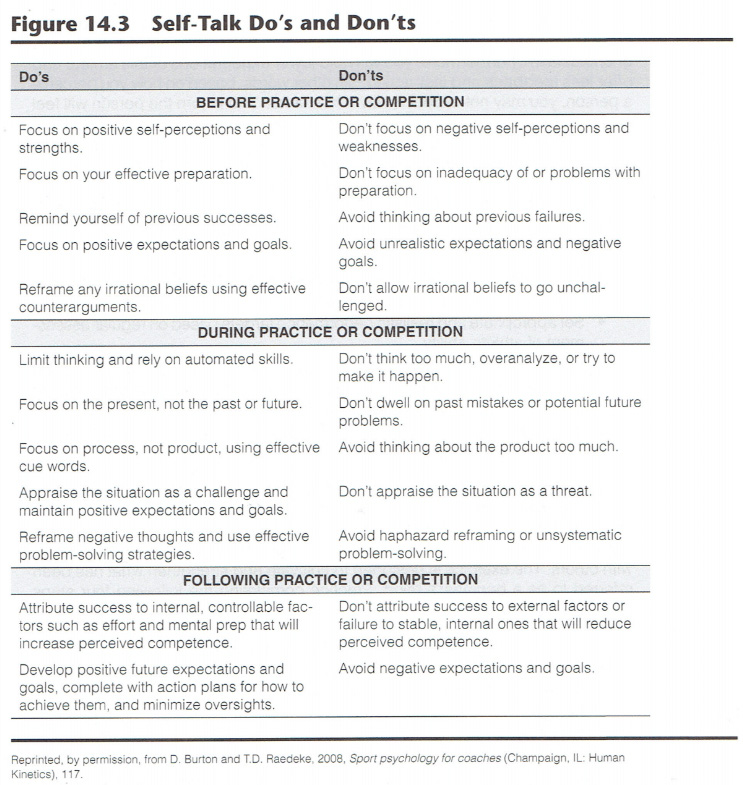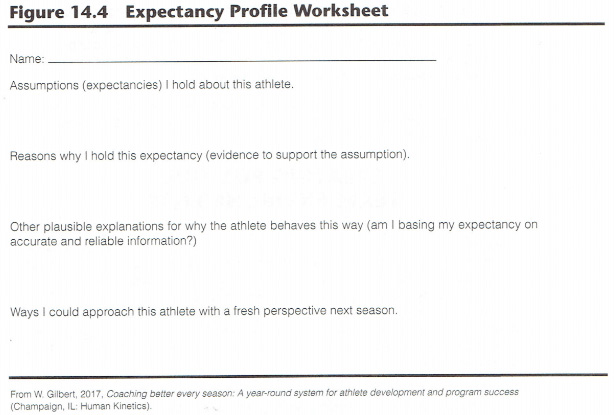|
By: Wade Gilbert Originally Published in: Coaching Better Every Season Provided by: Human Kinetics Miscommunication is repeatedly cited as the number one source of stress for coaches. Effective communication is a learned skill, and like any physical skill, it must be practiced to achieve improvement. The off-season is a perfect time for coaches to reflect on and enhance their communication and interpersonal skills.
A major source of miscommunication is the preconceived notions we hold of the people with whom we are trying to communicate. Whenever we are about to communicate with someone - an athlete, another coach, friend, or family member - we create an image of how we believe that the other person behaves, thinks, and will respond to our message. These expectancies we hold of others has been shown to have an extremely strong influence on how we approach these people. For example, if you believe that an athlete is lazy or isn't fully committed to the program, then you are less likely to approach that athlete with a positive attitude or enthusiasm. Furthermore, you will hold lower expectations of this athlete and offer less feedback and instruction. In other words, based on how you perceive a person, you may not expect much of him or her, and in turn the person will feel as if you don't expect much of him or her. A lack of mutual trust develops, and the athlete will continue to reinforce the negative image you have of him or her, which only strengthens the preconceived notions you hold. This mechanism is called an expectancy cycle, also known as a self-fulfilling prophecy. Fortunately, coaches can overcome the expectancy cycle and improve coach-athlete communication by following some simple guidelines based on recommendations from leading coaching scientists.
Coaches can also use a four-step exercise to help improve their communication by approaching each person, and each interaction, with a fresh set of eyes. This exercise, adapted from mindfulness training guidelines for coaches, will help improve your ability to leave preconceived notions behind when communicating with others. The exercise is designed to cultivate and strengthen what has been referred to as a beginner's mind. Practice completing the following four steps when greeting someone:
During the off-season, coaches could also create an expectancy profile for each of their athletes. Using the athlete expectancy worksheet provided in figure 14.4, coaches should note any assumptions or beliefs they hold about each of their athletes (e.g., "Larissa doesn't respect me as a coach."). After you identify assumptions, the next step is to ask yourself what evidence you have to support these beliefs (e.g., "Larissa rarely looks me in the eyes when I speak to her."). The third step is then to challenge yourself to think of other plausible explanations for the athlete behavior (e.g., "Is it possible that Larissa is intimidated by me or the way I communicate?"). Finally, the last step is used to think of ways you could approach the athlete with a fresh (unbiased) perspective when you start the next season (e.g., "In my preseason individual meeting with Larissa, I will share with her some information about different communication styles and ask her to identify which style best describes her."). The same worksheet could be used for thinking about how you communicate and interact with administrators and other coaches.
A final off-season strategy that addresses both communication and expectancies while simultaneously recharging your emotional tank as a coach is a gratitude note. Practice writing a short note, or even a short letter, for each athlete about something you are thankful for that happened the previous season. The note could be related to how the athlete influenced your life in a positive way or how you influenced the athlete's life. For example, perhaps an athlete helped you cope with a stressful season by making you laugh and bringing positive energy to practices. Or perhaps you helped an athlete improve study habits, pass a class, or learn how to cope with a difficult family or friendship situation. These experiences are an important source of enjoyment that feeds coach motivation and buffers against burnout." A good example of this viewpoint comes from a successful college coach who participated in a study on coach burnout: I love seeing a freshman come in and as a senior she's a young woman. Here, we take some kids that, they could have a pretty bad life, and all of a sudden they get their degree here and they turn it around a little bit, and I feel good about that. [The enjoyment] is the kids and how much you can affect their lives in a positive manner." Recognize and be thankful for the multitude of ways you win with each athlete. This strategy builds resolve and confidence, and prepares you to approach the next season with a positive outlook. |








